
Histamine Function, Foods List and Histamine Diet
Histamine is an organic nitrogenous compound involved in local immune responses communication, as well as regulating physiological functions in the gut and acting as a neurotransmitter for the brain, spinal cord, and uterus. Since histamine was discovered in 1910, it has been considered a local hormone because it lacks the classic endocrine glands to secrete it; however, in recent years.

Understanding Histamine Intolerance Dr Becky Campbell
Histamine is a substance your cells produce to help your immune system respond to allergy triggers. Histamine is an important part of your allergic response. That's why people use antihistamines.

Histrine FT 5 Mg Tablet Manfaat, Dosis, Efek Sampi...
Histamine is a signaling chemical your immune system releases to send messages between different cells. Histamine has several functions, but it's mainly known for its role in causing allergic and anaphylactic symptoms. Allergies are your body's reaction to a foreign protein. Usually, these proteins (allergens) are harmless.
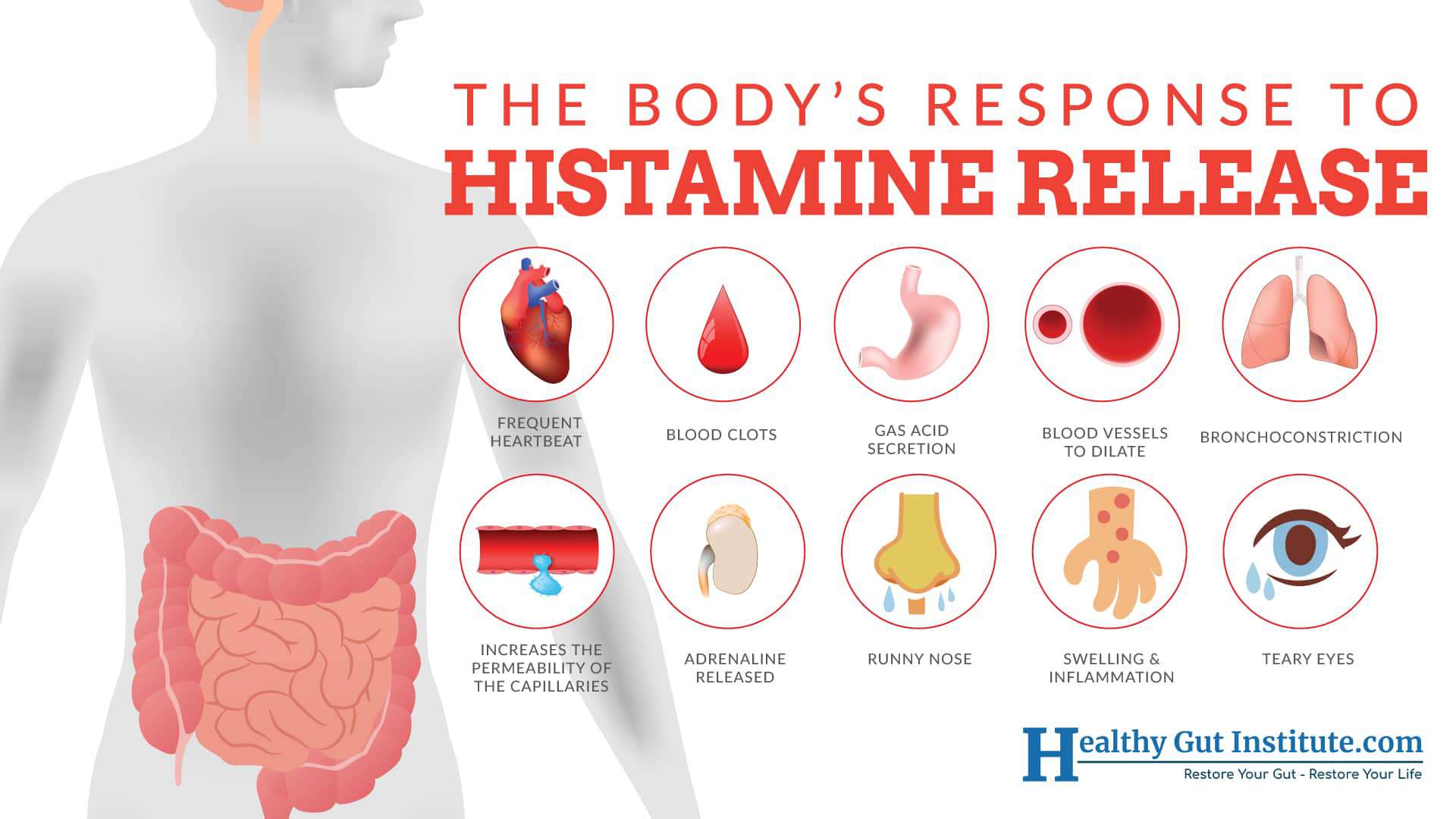
Chronic Allergies or a Histamine Intolerance? How to Tell for Sure
Antihistamines block histamine release from histamine-1 receptors and are mostly used to treat allergies or cold and flu symptoms, although some first-generation antihistamines (also called sedating antihistamines) may be used for other conditions, such as nausea or motion sickness.. Histamine-1 receptors are located in your airways (breathing tubes), blood vessels, stomach, and esophagus.
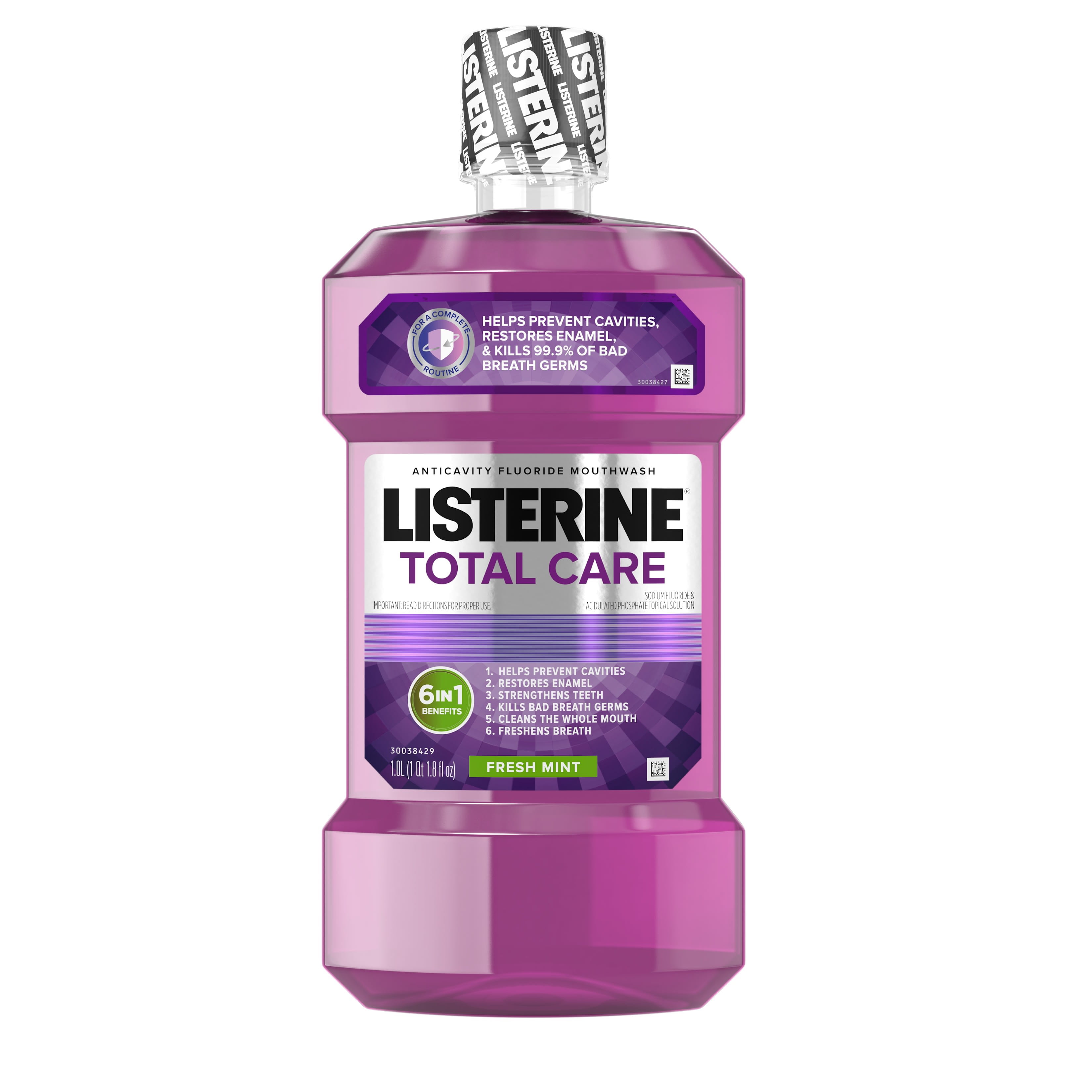
Listerine Total Care Anticavity Fluoride Mouthwash, Fresh Mint, 1 L
What is histamine? Histamine is an important chemical that has a role in a number of different bodily processes. It stimulates gastric acid secretion, plays a role in inflammation, dilates blood vessels, affects muscle contractions in the intestines and lungs and affects your heart rate.

Histamine synthesis, storage, release and metabolism thepharmaguidechannelgpat YouTube
If your nose was affected -- say by pollen -- histamines prompt thin walls, called membranes, to make more mucus. You can get a runny or stuffy nose. And you'll sneeze. The mucus can also bother.

Effective Treatment for Histamine Intolerance IBS Clinics
Histamine is a chemical released by the immune system in response to potential allergens, but too much of it can lead to symptoms like coughing, wheezing, and watery eyes. Learn which 6 foods.

Histrine Sirup 60ml Kegunaan, Efek Samping, Dosis dan Aturan Pakai Halodoc
Histamine is a chemical that sends messages to the brain, signals the release of stomach acid for digestion, and is released as part of the immune system's response to an injury or allergic.

Warning! If You Have These Signs You Might Have Histamine Intolerance!
Low histamine fish, such as trout or cod, freshly caught and served with zucchini and roasted carrots. Chicken with new potatoes, broccoli, and green beans. Pasta with olive oil, garlic, herbs.

Histaminergic neurons in the tuberomammillary nucleus as a control centre for wakefulness
Histamine Intolerance. Histamine intolerance is an inability to break down histamine in your body, causing it to build up. Certain foods that are high in histamine or that cause your body to release histamine can give you an upset stomach, headache or allergy symptoms. Common trigger foods include fish, alcohol, and fermented or aged foods.
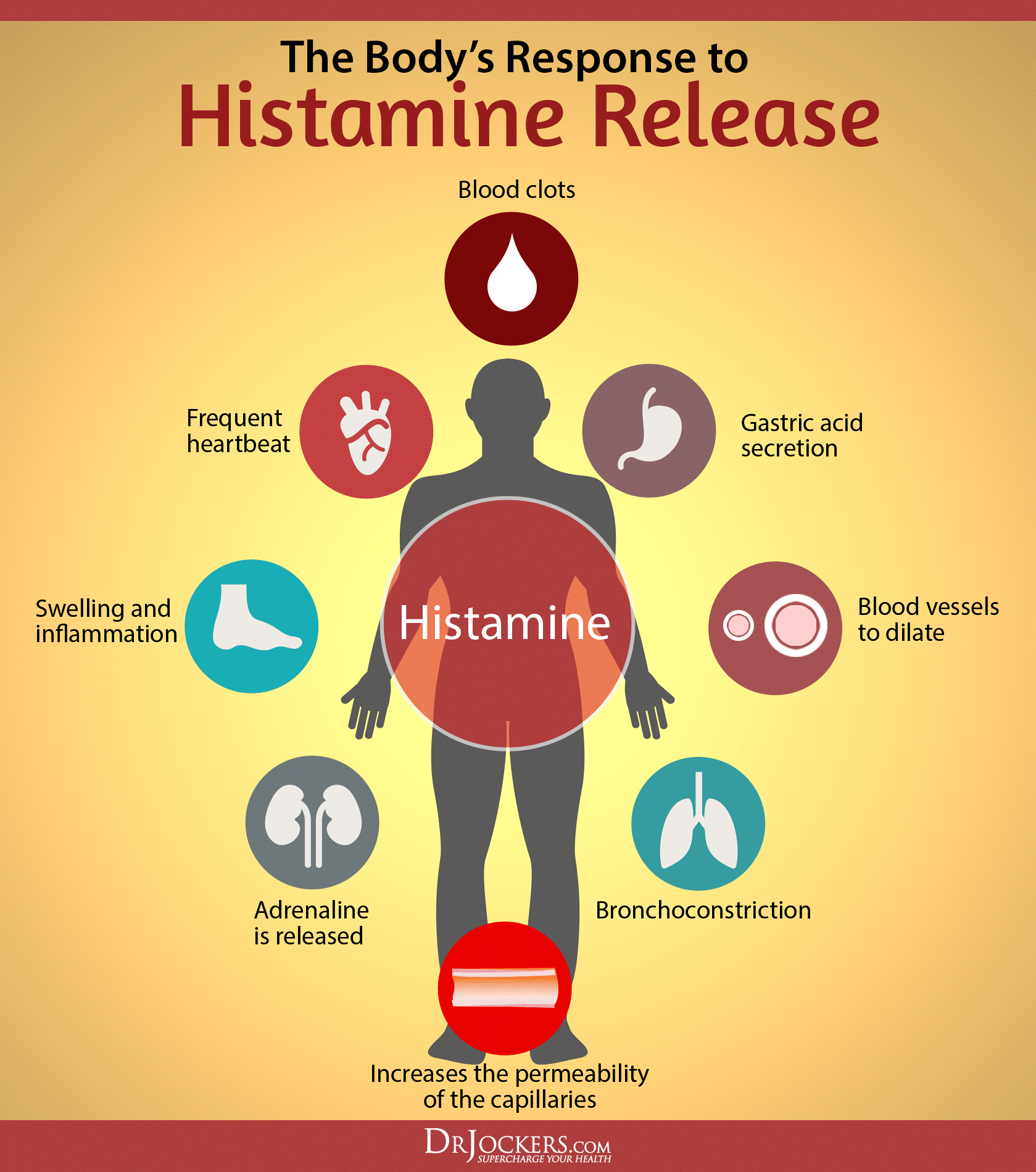
Histamine Testing
Histamine is an endogenous biogenic amine classically associated with peripheral allergic and inflammatory reactions but it can regulate both brain inflammation 1 and neurogenesis 2,3.Histamine.
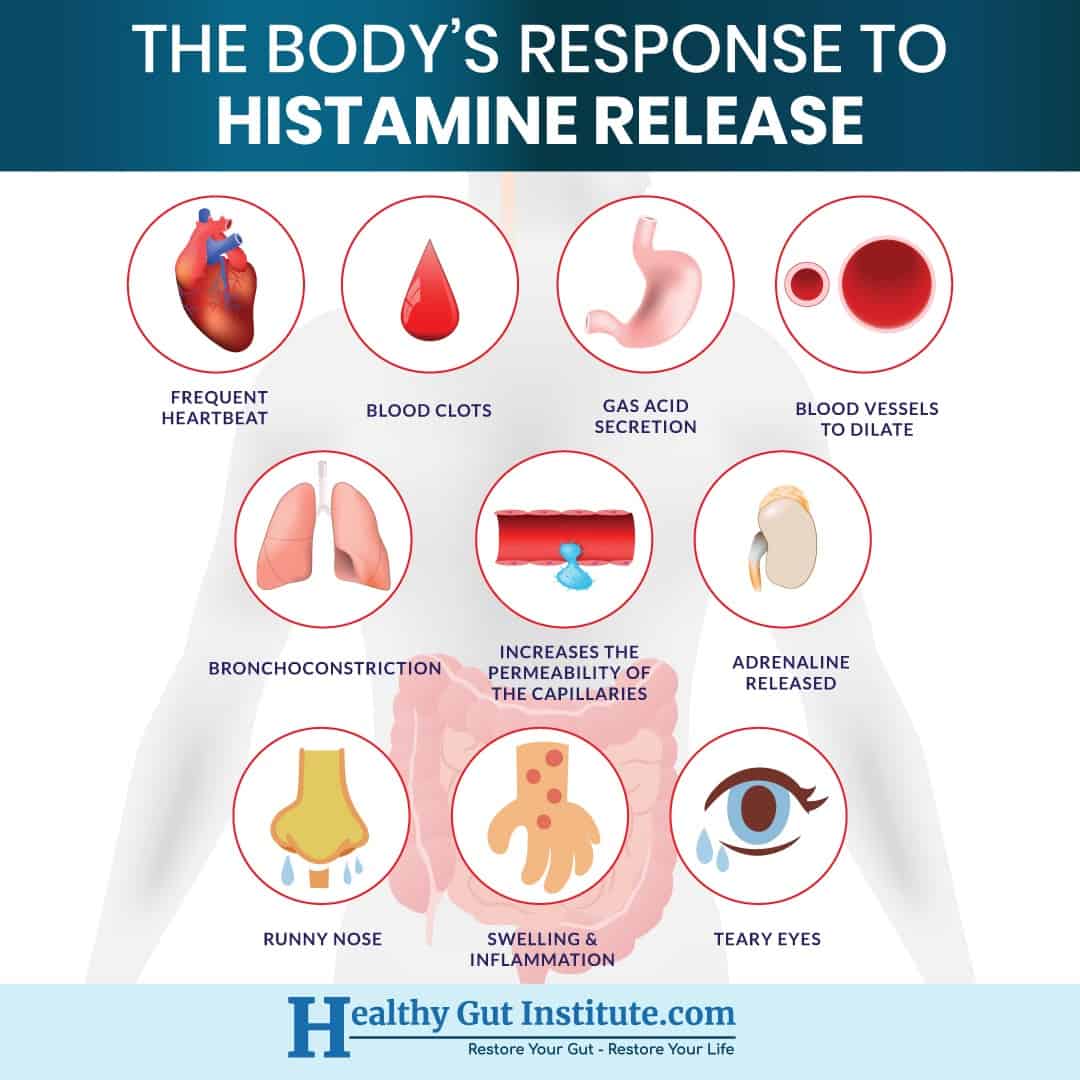
Histamine Issues Learn to spot Histamine Rich Foods
Histamine is a hydrophilic vasoactive amine and once formed, it is either quickly inactivated or stored. When released at synapses, it is broken down by acetaldehyde dehydrogenase. When this.
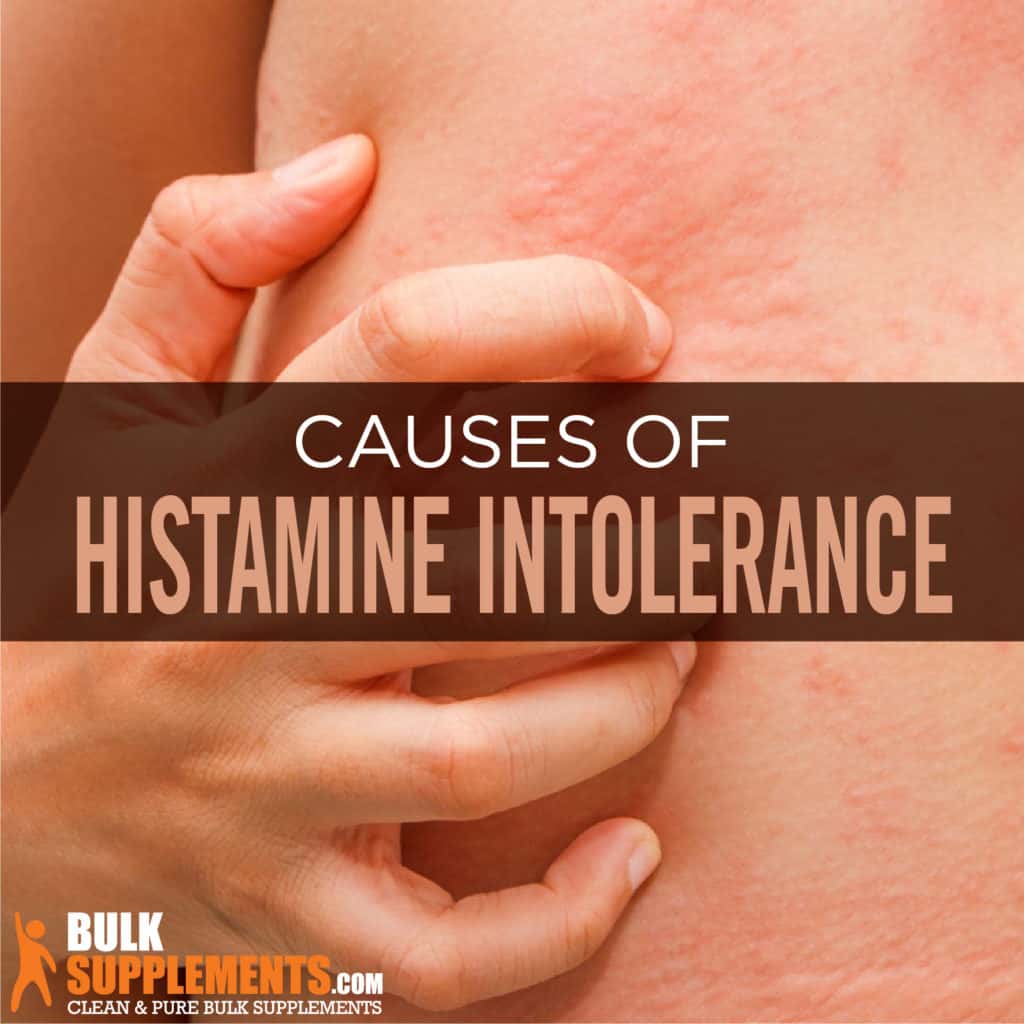
Histamine Intolerance Signs, Causes & Treatment
Summary. Histamine is a chemical produced by your immune system that can start a chain reaction to defend against allergens. When histamine is released, blood flow to the affected area of the body increases, causing an inflammatory cascade. Other immune system chemicals complete the chain reaction to repair the damage to your tissues.
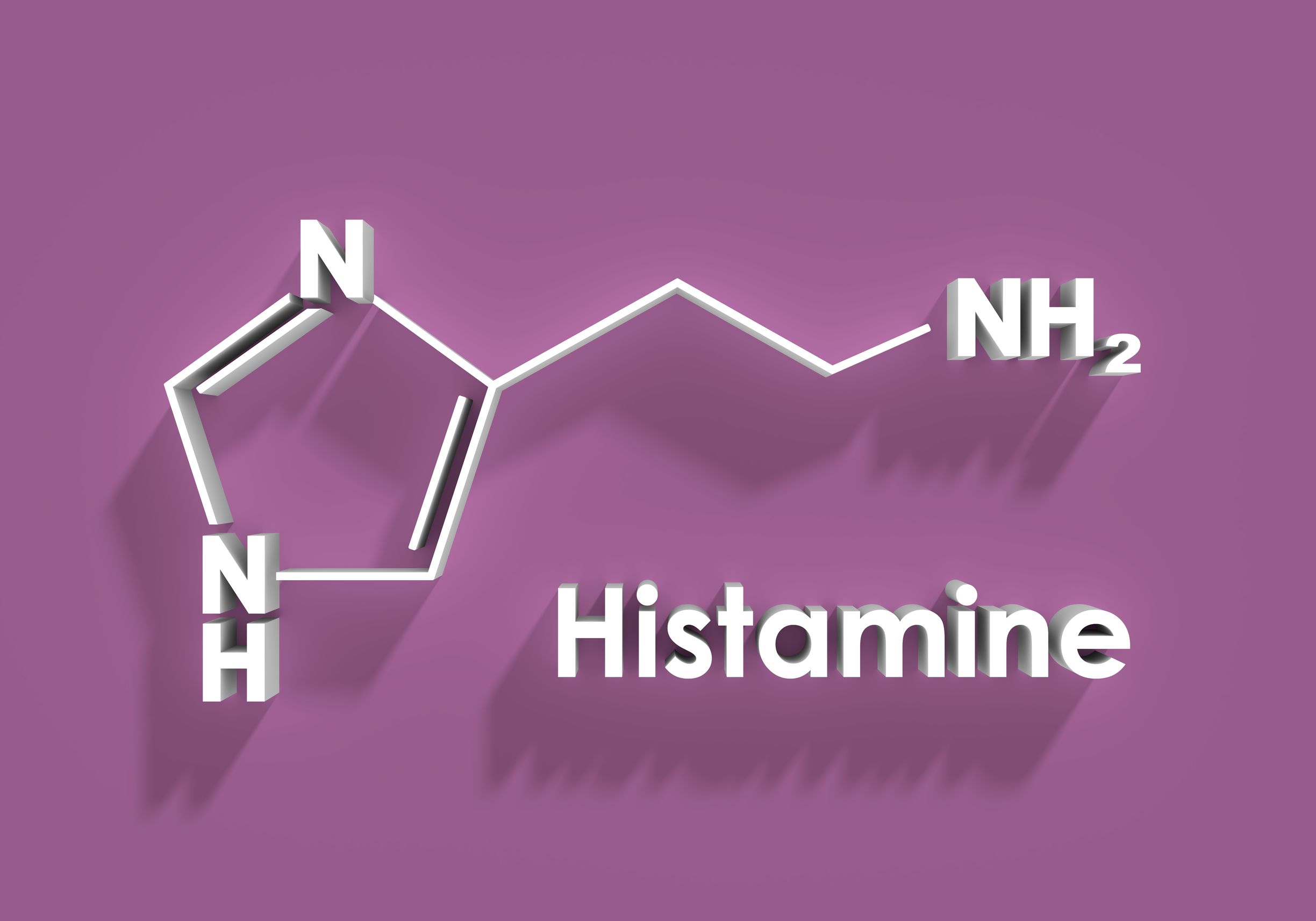
Histamine Intolerance Symptoms, Diet & Treatment Amy Burkhart, MD, RD
Allergy symptoms are caused by histamines, a chemical released during allergic reactions. Allergy medicines can come in a variety of forms including nasal sprays, pills, eyedrops or liquids. Some are antihistamines, which block the histamine release, while others are corticosteroids, which treat inflammation.

Histamine Intolerance 101 Dr Becky Campbell
Does histidine increase histamine? Histidine is the source and precursor from which histamine is derived in the body. The enzyme histidine decarboxylase produces histamine from histidine. While histamine is most well-known for being tied to allergies, it also has functions in the brain related to attention and arousal. For example, studies have.
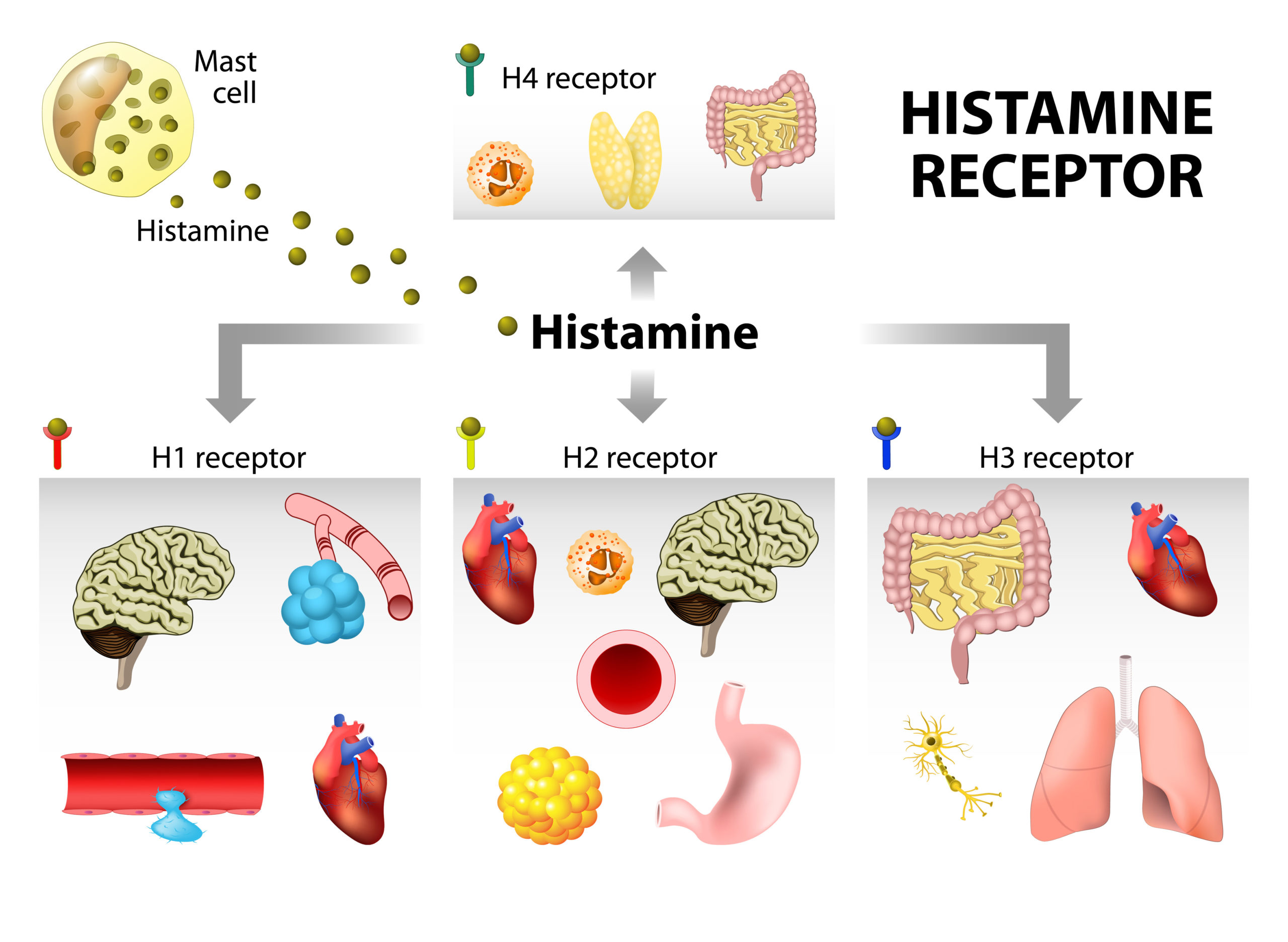
Histamine Intolerance Everything You Need to Know
Histamine is one of the earliest identified mediators of allergy. Researchers identified its role in the modulation of allergic reactions as early as 1932. Since then, research has determined histamine to be a mediator of autoimmune conditions, gastric acid secretion, and hematopoiesis.[1] Histamine is present within all bodily tissues; however, its sites of highest concentration include the.